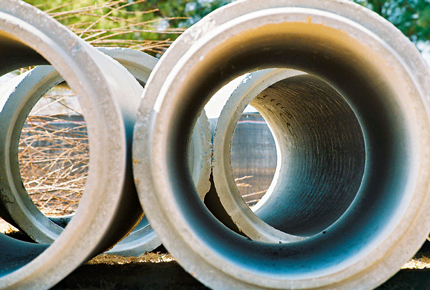Is your toilet filling higher than normal? Does your bath or sink take a long time to empty? Do the manholes and overflow gully in the yard overflow regularly? Did your child flush a soft toy or a ball down the toilet to see if it would disappear?
Slow drains, overflowing toilets, and gullies, gurgling noises from your drains – these are all signs that your sewer pipes have a blockage in them – in other words, you have a ‘sewer choke’.
What is a sewer choke?
A sewer choke can be anything that causes a blockage in your wastewater pipes. It just means that something inside the pipes stops it from working properly.
The problem can be within your wastewater pipes or the ones owned by the water provider. Either way, sewer chokes need to be dealt with promptly or you could end up with burst pipes – a problem no one wants to face!
What causes a sewer choke?
According to a study conducted by Sydney Water, over 80% of sewer chokes are caused by tree roots entering the pipes. Trees like figs, eucalyptus, liquid amber, bottlebrush, casuarina and paperbark are the ones found to cause the most damage.
Other than tree roots, sewer blockages can be caused by debris, grease or silt entering the sewer system. This occurs when foreign objects like sanitary products, hair, or barbecue fat are flushed or washed down the drains.
The solution
If you suspect a sewer choke in your North Shore home, it is important that you call in licensed plumbers like our team at JEDI Plumbing, as soon as possible, to prevent further damage to your pipes. Of course, a call to our emergency helpline is ideal in cases like an overflowing toilet or a burst sewer pipe.
With sewer chokes, the challenge lies in identifying the location of the blockage and choosing the best way to clear it. The blockage can occur in any section of your sewer pipes, at the point of connection between your property’s pipes and the common drain pipes, or within the pipes owned by the water company.
You are responsible for all blocks within your property – any repairs, maintenance or replacement of the pipes and fittings must be paid for by you. But if the blockage is in the wastewater pipes owned by the company, you may be able to claim the out of pocket expenses by calling their helpline and having it inspected by their crew.
Tips for preventing sewer chokes
- Before planting any tree in your yard, consider the root damage. In dry periods, tree roots will spread out in search of any trace of moisture – sewer pipes are ideal sources. You should know the location of the sewer pipes in your property and that of the mains, and plant the trees away from these. Before choosing any species, consult your local nursery or council horticulturalist about its root growth.
- If you have an existing tree which is causing damage, you can get the roots removed from the pipes as a temporary solution. You can also arrange for planned root cuts at regular intervals to avoid the need for a call to our North Shore emergency plumber. In some cases, the tree will have to be completely removed for long-term prevention of sewer chokes.
- Never use your toilet to dispose of foreign objects like baby nappies, wipes, cotton buds, tampons or other sanitary products. Even wipes which are labelled ‘flushable’ take a long time to decompose and can cause clogging, if used in large numbers. It is always better to dispose of products not intended for the sewer systems in the garbage bin.
- Do not empty cooking oils, fats or greases into the drain as these solidify and cause build-up inside your pipes leading to blockage. Small quantities of oils and greases can be wiped up with a paper towel and thrown in the garbage bin. Barbecue fats can be allowed to cool, then scraped off into a bag and thrown in the rubbish bin. Larger quantities can be tied up in a plastic bag or container, frozen if necessary, and then thrown away.
- Paints, pesticides and other chemicals used for home maintenance must never be emptied into drains as these are corrosive and can damage your pipes. They are also an environmental hazard and must be disposed of appropriately.
- There are also cases where a portion of the pipe breaks off and the broken pieces or soil blocks the sewer lines. If you suspect that your sewer pipes are very old or weakened, it is best to get them replaced. We can help you with this by providing a free, no obligation quote.
Sewer chokes are a serious problem which can cause sewage overflows or burst pipes. The impact of raw sewage entering our environment and waterways is tremendous. Our team at JEDI Plumbing is well-experienced in identifying and fixing sewer problems and are happy to offer regular maintenance inspections which may help avoid such problems.
If you are on Sydney’s North Shore or Northern Beaches and need the services of an emergency plumber, you can call us 24 hours a day on 0411 774 381.
